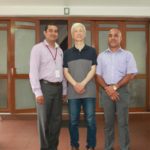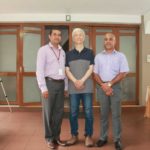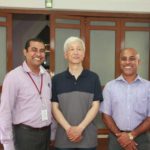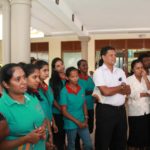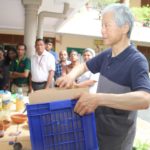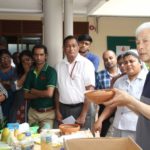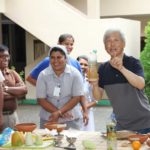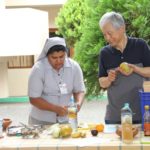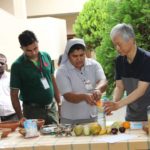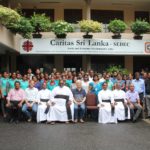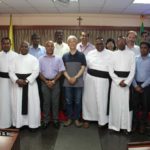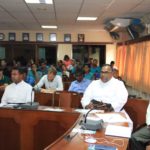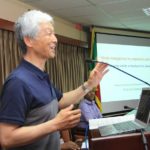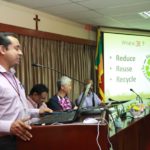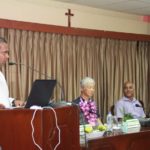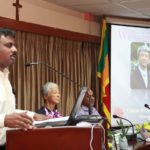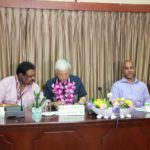Prof. Takakura, an Environmental Engineer from Japan, widely known as the inventor of the well-known Takakura composting methodology made a courtesy call to SEDEC on 18th May 2018.
SEDEC made use of the Takakura composting methodology in its solid waste management programme (SWM) and introduced the composting method as a solution to the bio-degradable waste.
A large gathering of invitees, including 4 Diocesan Priests from Chilaw, Colombo, Jaffna and Rathnapura, Diocesan and National Centre Staff participated in the half-day session.
Delivering the lecturer, Prof.Takakura illustrated how the Japanese evolved in adopting the aspects of Solid Waste Management 60 years ago. In addition, he explained as to how the need to develop an effective composting methodology was inspired, and how he carried out experiments to figure out a method that would bring solutions to the house hold waste generation issue with simple and practical applications.
Prof. Takakura has initiated the Takakura Composting methodology in Surabaya, Indonesia, especially aiming at the urban household settings. One of the distinctive features of the methodology is that the ingredients for making the seed compost should be found from the nearby vicinity, making the methodology a viable and easy activity. He says even the fermenting solutions should be made using the locally available food ingredients of fruits, vegetables.
After the main lecture, a practical session was conducted by Prof. Takakura to demonstrate his methodology while answering to numerous queries from the audience about the making and use of Takakura composting method.
At the session, officers namely, Mr. Sajith Silva and Ms. Nilani Tissera from Caritas Sri Lanka made two presentations on the implementation of the Caritas-led solid waste management programme and of the project activities related to the sustainable agriculture respectively.
Mr. Silva also explained to the audience and Prof. Takakura how the Caritas-led SWM programme began with an unforgettable disaster or rather a learning for life remembering the Methotamulla incident.
BACKGROUND
At the aftermath of the Meethotamulla garbage dump disaster, every Sri Lankan was in a bit of shock and shame. Newspapers and Tv programmes summed up and analyzed the disaster from different perspectives and stimulated a new wave of thinking into the way as to how we should live our life responsibly.
The disaster has opened the eyes of every Sri Lankan to start thinking of the management of waste seriously and instead of pointing the finger at others, the situation persuaded the government and as well as the citizens both alike, to carry out their legitimate and social responsibilities for the betterment of the nation.
In this context, Caritas Sri Lanka-SEDEC, the social arm of the Catholic Church perceiving the pulse and beat of the changing Sri Lanka social milieu, started an educational awareness programme to discuss about impacts of the garbage problem, segregation and recycling of plastics. SEDEC also introduced the famous 3R method to influence people to reduce waste generation at the generation point. As an effective solution to the kitchen waste, the Takakura compost methodology had also been introduced.
SEDEC had conducted numerous awareness programmes of solid waste management in 2016/17, targeting Diocesan Staff, schools, convents, apostolates, seminaries and other organizations and societies which were interested in gaining new knowledge.
(Prior to this, the staff of Caritas Sri Lanka had been made aware of the Takakura composting methodology by Mr. Anuradha Wijeyawardana, a self-taught environmentalist and expert in development.)


